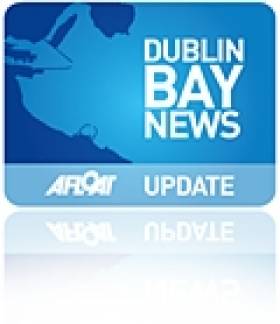Displaying items by tag: The Royal Marine Hotel
Four Championships (and a Mega Party) Planned for Dun Laoghaire 2011
A number of classes have already committed to run open championships within the regatta including the Wayfarer UK and Irish Nationals, the J109 Open Championship, the SB3 Open Championship and a return match of the Irish Sea Championship in J80s between Ireland and Wales. The race management team headed up by Con Murphy, aided by the usual ocean of wonderful volunteers, are working to facilitate this to ensure the kind of quality race management and organisation that will ensure the success of these championships.
The non-spinnaker fleet was the largest fleet in the Regatta in 2009 and is expected again to top the numbers and provide great racing for large boats with a smaller crew.
The regatta combines the wonderful waterfront facilities of all 4 Dun Laoghaire clubs and includes support from other clubs in the Dublin area including Howth. There will be a full on entertainment programme for all participants and many more with the continued support of many of the sponsors of 2009 which included Volvo Cars, Dublin Port, Dun Laoghaire Rathdown County Council, The Royal Marine Hotel, Helly Hansen, Dubarry and many more.
One of the highlights of the regatta are the Ladies Lunches which will again be held across a number of the clubs on the Saturday. Top Fashion, great food, a dash of style accompanies by the glass of champagne are the order of the day. All these at a very reasonable price reflecting the realities of today's tightened purse strings.
There will be more announcements in the coming weeks.
For more information visit www.dlregatta.org or event secretary Ciara Dowling at [email protected]






























































